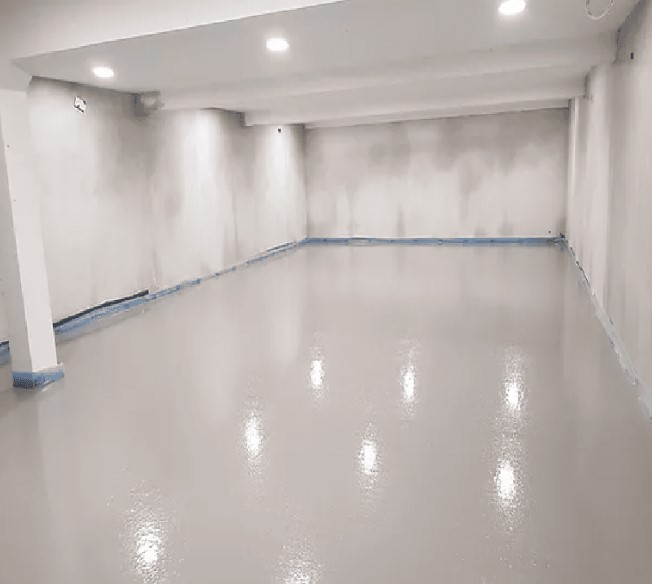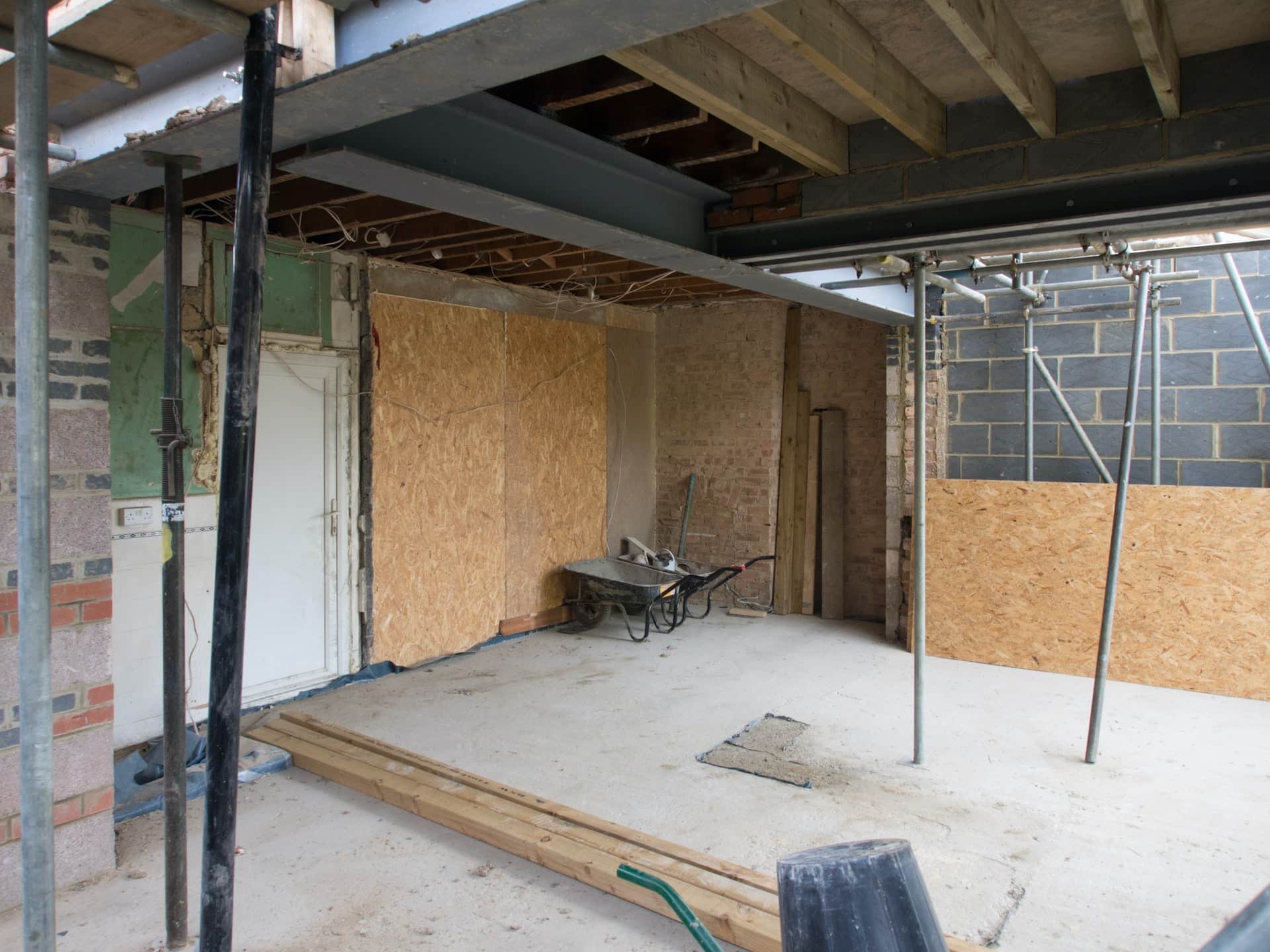HomeOur ServicesLiquid Floor Screed
Liquid Floor Screed

Liquid Floor Screed Services In Dublin For Underfloor Heating Systems
We specialise in liquid floor screed in Ireland which is perfectly suitable to be poured over floor heating. We supply the required materials, and for customers with underfloor heating installed, we check the system for leaks and pressure tests before pouring the screed, which is specially designed for underfloor heating.
We provide complete liquid floor screed pouring services anywhere in Dublin.
Transform Your Space With Liquid Floor Screed In Ireland
Are you tired of dealing with uneven floors that never seem to stay level? Look no further than liquid floor screed in Ireland, the solution to all your flooring woes. This innovative flooring option is becoming increasingly popular due to its versatility, durability, and ease of installation.
It is ideal for commercial and residential properties. It can also be used as an underfloor heating system, providing a comfortable and energy-efficient way to heat your home or office. With a wide range of colors and finishes to choose from, liquid screed in Dublin is sure to fit any design aesthetic. Its self-leveling properties mean you can say goodbye to unsightly bumps and dips.
Ready to transform your space with a new, sleek look? Liquid floor screed is the way to go.
Liquid Floor Screed: Versatile, Durable, and Efficient Flooring Solution
Liquid floor screed is a fast, efficient way to lay a beautiful concrete floor. It's often used in residential and commercial construction as an alternative to solid concrete because of its speed, durability, and ease of installation.
Liquid floor screeds in Ireland are an increasingly popular choice for installing underfloor heating in their home. They offer a range of benefits, making them an ideal choice for providing reliable, even heat distribution throughout your property.
Learn more about how liquid floor screeds can benefit you and how they work here.
What Is Liquid Floor Screed?
Liquid floor screed is a ready-to-use mixture of cement, fine aggregates, water, and special additives to level concrete surfaces. It’s usually applied as a thin layer, creating an extremely durable and level surface without the need for heavy machinery or large crews.
When used correctly, liquid floor screeds can create seamless flat surfaces ideal for stone tiles and other surface coverings. Liquid floor screed is ideal for a wide range of applications, such as leveling concrete floors before laying tiles or other hard finishes, and it’s often used to level uneven surfaces. The mixture is easy to apply (usually with a pump), spreads evenly, and quickly hardens into a durable surface that won’t crack over time.
Additionally, its fast-drying time means you can return to work faster than ever! Liquid screed in Dublin is an excellent solution for those looking to quickly and easily create the perfect context for their next project.

Advantages of Liquid Floor Screed: Efficiency, Durability, and Energy Savings
- Easy Installation: Liquid floor screed is much easier to install than traditional poured concrete or tiling, reducing labor costs and time spent on the job.
- Quick Application: Liquid floor screed can be applied quickly, offering great value and convenience with minimal disruption to daily life.
- Reduced Waste: During installation, liquid floor screed produces less waste material compared to other options.
- Energy Efficiency: Liquid floor screed is more energy efficient than concrete or tiling, leading to lower cooling and heating bills due to its heat-retaining properties.
- Increased Safety: It provides a non-slip surface, ensuring safety underfoot even when wet, making it ideal for environments such as swimming pools and spas.
- Exceptional Durability: Liquid floor screed stands up to high levels of foot traffic, making it suitable for busy office lobbies or retail stores.
- Installer-Friendly: No need for wheelbarrows, tools, or excessive workforce during installation.
- Versatile Application: Suitable for use in various environments, including basements, exposed floors, and joisted areas, making it ideal for retrofitting existing constructions.
- Minimal Shrinkage or Expansion: Liquid floor screed maintains its shape and does not shrink or expand over time.
- Efficient Underfloor Heating: The material’s thermal conductivity is 11 times greater than concrete screeds, making underfloor heating systems more efficient.
- Consistent Thickness: Liquid floor screed ensures a uniform and smooth base, allowing heat to disperse efficiently across the entire surface.
- Easy Tailoring: It can be applied in layers up to 6 cm thick and at any temperature, making it suitable for underfloor heating systems’ needs.
- Low Absorption: Liquid floor screed’s low absorptive property keeps houses warm and insulated while remaining cost-effective.
- Homogenous Material: Liquid floor screed offers enhanced flexibility, and there’s no need to worry about cold spots or fluctuating temperatures throughout the home.
- Ideal for Underfloor Heating: Liquid floor screed is becoming increasingly popular among homeowners looking for a more efficient underfloor heating system, offering faster installation with less mess and improved thermal performance.
Factors That Affect Liquid Screed Price
The Liquid Screed Price is influenced by factors such as:
Total Area To Cover: The larger the area that requires a liquid floor screed, the more material will be needed, impacting the project’s overall cost.
Type Of Screed Chosen: Different types of liquid floor screeds are available, each with varying performance characteristics and price points. High-performance or specialised screeds may cost more than standard options.
Thickness And Coverage Ratio: The required thickness of the screed and the recommended coverage ratio will influence the amount of material needed, directly affecting the cost.
Additives And Performance Traits: Screeds with additives like colorants or enhanced performance properties may be more expensive than basic screeds.
Substrate Condition: If the existing substrate is uneven or requires repairs and treatments, it will affect the amount of material needed to level it out, potentially increasing the overall cost.
Labor Costs: The complexity of installation works and the labor required will impact the overall cost. Larger or more intricate projects may require additional labor, driving up expenses.
Material Quality: Higher-quality liquid screed materials with improved properties, such as enhanced wear resistance, sound insulation, or thermal properties, may come with a higher price tag.
Accessibility Of The Site: If the site is difficult to access, it may increase transportation and logistical costs, which could add to the overall project price.
Project Timeline: Urgent or time-sensitive projects may require additional resources or overtime labor, which can affect the final cost.
Additional Materials And Services: Some projects may require additional materials or services, such as moisture barriers or primers, which can contribute to the overall cost.
Location: The cost of liquid floor screed can vary depending on the region or country due to factors such as local supply and demand, transportation costs, and market conditions.
Contractor Expertise: Hiring a specialist contractor with extensive experience in liquid floor screeding may incur higher costs but can also ensure a better-quality installation.
Tips for Successful Liquid Floor Screed Installation
- Always hire a professional contractor experienced in liquid floor screed in Ireland installations to ensure proper application and adherence to the manufacturer's instructions and local building codes.
- Before installation, prepare the surface area by leveling the floor, checking for dampness or plumbing leaks, and ensuring the space is clean and free of debris.
- A flat squeegee or rake spreads the liquid floor screed evenly across the prepared area.
- Allow the liquid screed to dry fully before adding any additional layers.
- Ensure adequate ventilation and airflow during drying to aid in proper curing. Large opening windows can provide natural airflow, and consider using forced-air ventilation systems with an adjustable thermostat, humidistat, and timer for controlled drying.
- Use light bulbs placed around the edges of the floor space to provide additional warmth during the drying process, but seek professional advice before using electric heat sources.
- Monitor temperature and humidity levels during drying to ensure optimal conditions for screed curing.
- Follow the manufacturer's guidelines for drying times and any other specific recommendations for using the liquid floor screed.
- Avoid foot traffic or heavy loads on the screeded area until fully cured and hardened per the manufacturer's instructions.
- Regularly inspect the installation for any signs of issues or defects during and after the drying process. Address any concerns promptly to ensure a successful installation.
- Consult our specialist contractors today. We can provide a more accurate liquid screed price estimate tailored to your project needs.
